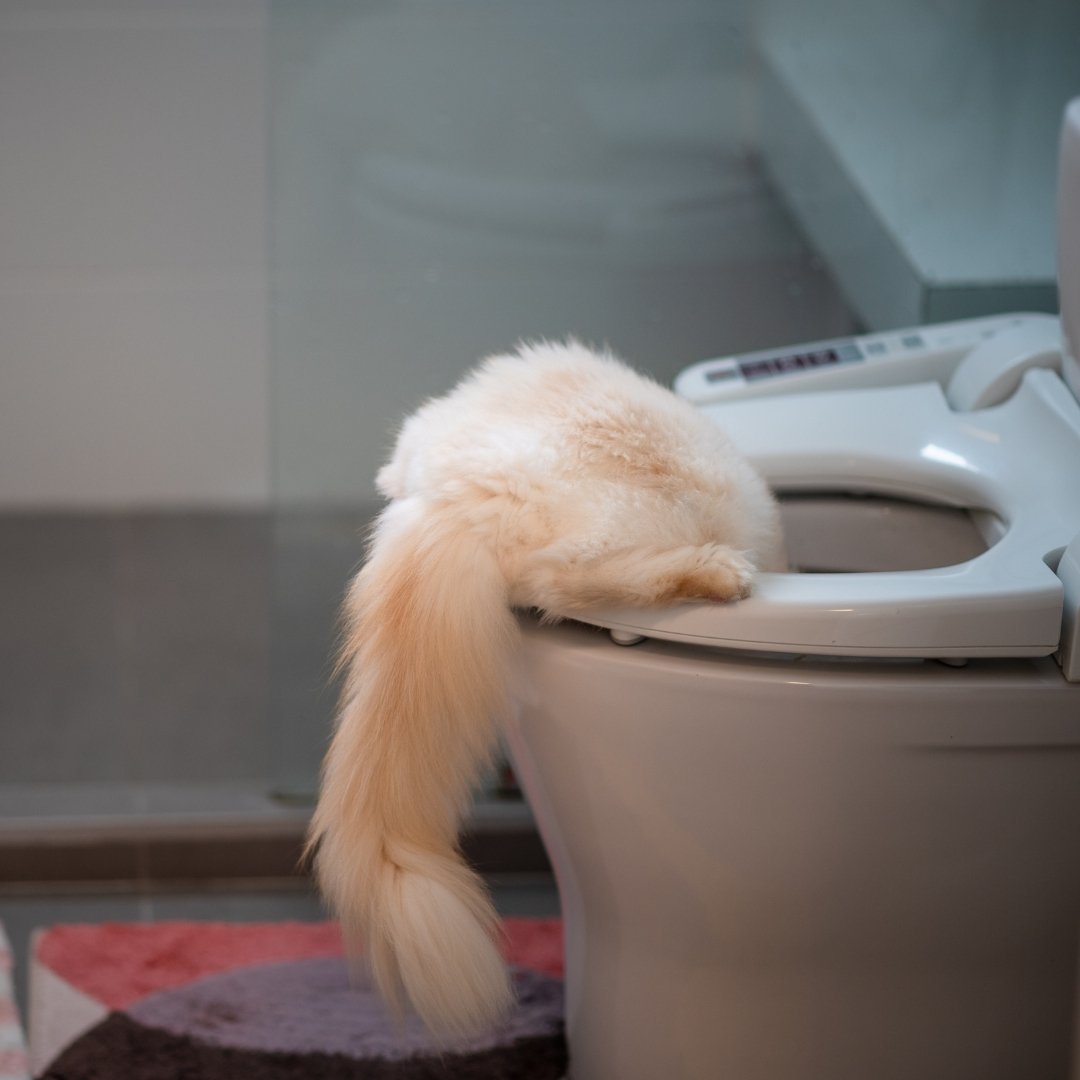Why You Mustn't Flush Cat Poop Down Your Toilet - Maintain Your Plumbing System
Why You Mustn't Flush Cat Poop Down Your Toilet - Maintain Your Plumbing System
Blog Article
We have encountered this great article pertaining to Can You Flush Cat Poo or Litter Down the Toilet? listed below on the net and think it made good sense to relate it with you here.

Introduction
As feline proprietors, it's essential to be mindful of how we take care of our feline buddies' waste. While it may appear hassle-free to purge cat poop down the bathroom, this method can have harmful effects for both the atmosphere and human wellness.
Alternatives to Flushing
Luckily, there are much safer and a lot more accountable methods to throw away feline poop. Consider the adhering to choices:
1. Scoop and Dispose in Trash
One of the most typical technique of getting rid of pet cat poop is to scoop it right into a naturally degradable bag and throw it in the trash. Make certain to use a specialized trash scoop and dispose of the waste immediately.
2. Usage Biodegradable Litter
Go with naturally degradable pet cat trash made from products such as corn or wheat. These litters are eco-friendly and can be securely disposed of in the garbage.
3. Hide in the Yard
If you have a backyard, consider burying feline waste in a marked location away from veggie yards and water resources. Make certain to dig deep enough to stop contamination of groundwater.
4. Mount a Pet Waste Disposal System
Buy a family pet waste disposal system particularly designed for cat waste. These systems utilize enzymes to break down the waste, lowering odor and ecological effect.
Wellness Risks
Along with ecological concerns, purging feline waste can likewise posture health and wellness risks to human beings. Cat feces might consist of Toxoplasma gondii, a parasite that can trigger toxoplasmosis-- a possibly severe ailment, especially for expecting females and individuals with weakened immune systems.
Ecological Impact
Purging feline poop presents unsafe microorganisms and bloodsuckers into the water supply, posing a considerable threat to water communities. These impurities can negatively impact aquatic life and concession water quality.
Conclusion
Accountable pet ownership prolongs past providing food and shelter-- it also entails proper waste management. By avoiding flushing feline poop down the toilet and opting for alternate disposal techniques, we can decrease our ecological footprint and safeguard human health and wellness.
Why Can’t I Flush Cat Poop?
It Spreads a Parasite
Cats are frequently infected with a parasite called toxoplasma gondii. The parasite causes an infection called toxoplasmosis. It is usually harmless to cats. The parasite only uses cat poop as a host for its eggs. Otherwise, the cat’s immune system usually keeps the infection at low enough levels to maintain its own health. But it does not stop the develop of eggs. These eggs are tiny and surprisingly tough. They may survive for a year before they begin to grow. But that’s the problem.
Our wastewater system is not designed to deal with toxoplasmosis eggs. Instead, most eggs will flush from your toilet into sewers and wastewater management plants. After the sewage is treated for many other harmful things in it, it is typically released into local rivers, lakes, or oceans. Here, the toxoplasmosis eggs can find new hosts, including starfish, crabs, otters, and many other wildlife. For many, this is a significant risk to their health. Toxoplasmosis can also end up infecting water sources that are important for agriculture, which means our deer, pigs, and sheep can get infected too.
Is There Risk to Humans?
There can be a risk to human life from flushing cat poop down the toilet. If you do so, the parasites from your cat’s poop can end up in shellfish, game animals, or livestock. If this meat is then served raw or undercooked, the people who eat it can get sick.
In fact, according to the CDC, 40 million people in the United States are infected with toxoplasma gondii. They get it from exposure to infected seafood, or from some kind of cat poop contamination, like drinking from a stream that is contaminated or touching anything that has come into contact with cat poop. That includes just cleaning a cat litter box.
Most people who get infected with these parasites will not develop any symptoms. However, for pregnant women or for those with compromised immune systems, the parasite can cause severe health problems.
How to Handle Cat Poop
The best way to handle cat poop is actually to clean the box more often. The eggs that the parasite sheds will not become active until one to five days after the cat poops. That means that if you clean daily, you’re much less likely to come into direct contact with infectious eggs.
That said, always dispose of cat poop in the garbage and not down the toilet. Wash your hands before and after you clean the litter box, and bring the bag of poop right outside to your garbage bins.
https://trenchlesssolutionsusa.com/why-cant-i-flush-cat-poop/

Hopefully you enjoyed reading our excerpt about How to Dispose of Cat Poop and Litter Without Plastic Bags. Thanks a ton for finding the time to browse our content. If you liked our article if you please don't forget to share it. Thank you so much for your time spent reading it.
View More Report this page